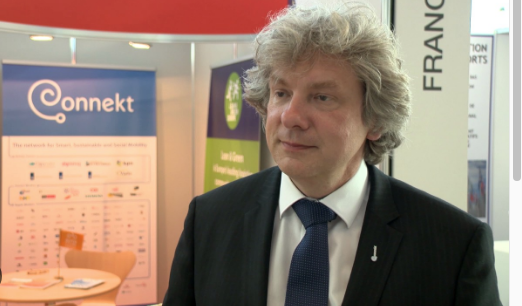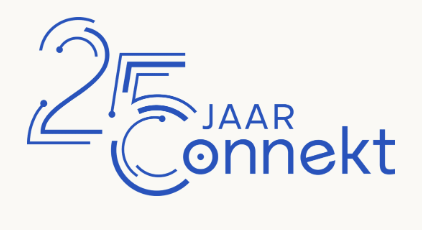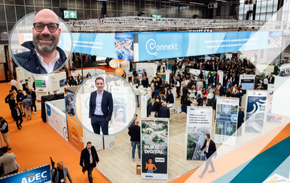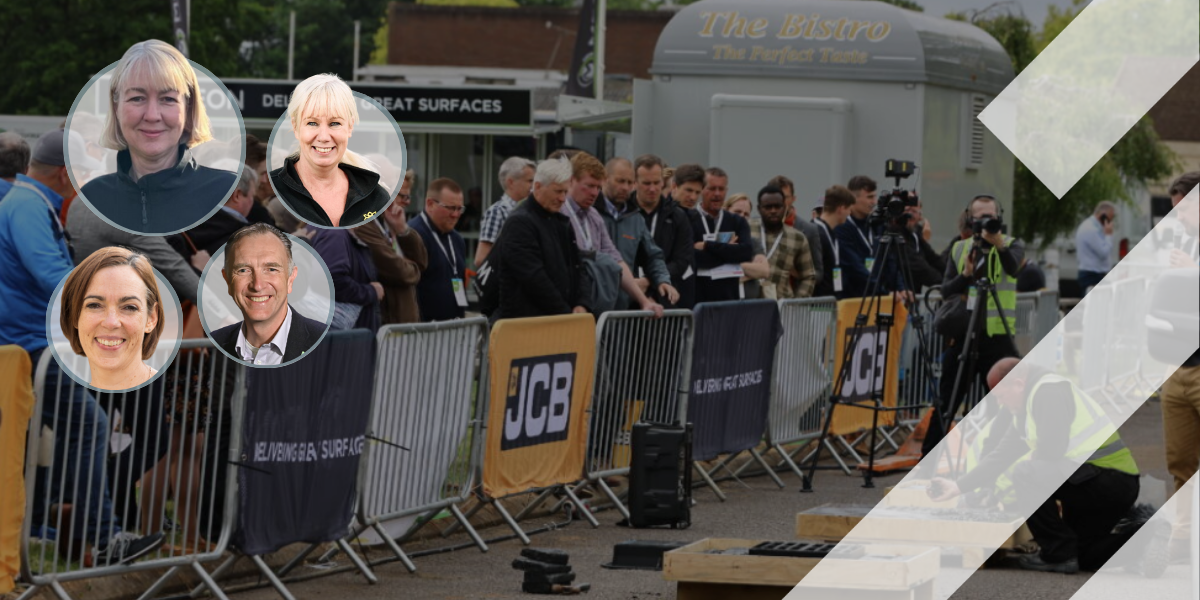As the reality of digitalisation creeps ever closer, Intertraffic caught up with Nico Anten, Secretary-General of International Affairs at Connekt, the Dutch independent network for sustainable mobility and logistics, to talk about what it means in the context of the smart mobility sector
Keywords
Digitalization, smart mobility, public-private collaboration, data sharing, vehicle-to-infrastructure communication, traffic management, resilience of networks, AI analysis, European digital infrastructure consortium, mobility and logistics, cross-border cooperation, geopolitical challenges, logistics capacity, Dutch innovation.

Nico Anten interview
“The competitiveness of the industry in Europe is key,” says Nico Anten, now in his 25th year with Connekt, when asked to offer a perspective on digitalization means and will mean for the smart mobility sector. Connekt itself is celebrating its quarter-century in 2025 and Anten has been there from the beginning.
“You see the strong competition with the US and with Asia, and a lot of what Brussels is doing at the moment is focusing on how we can make the industry more competitive. Digitalization is seen as a key means to achieve that. What I see here for smart mobility is the opportunity that it is always a solution-driven industry, but now it could also focus on really being the demand-driven issue,” he says., before offering a pertinent example.
A lot of what Brussels is doing at the moment is focusing on how we can make the industry more competitive. Digitalization is seen as a key means to achieve that
“For example, due to the geopolitical challenges we currently have, there's a lot of military equipment being ordered. It all has to be shipped and a lot of it will come through Rotterdam but there's a challenge, because the physical infrastructure lacks capacity.
“What we need to do here is ask ourselves how can we make this better? How can we optimize the current capacity? And what's the maximum weight that the infrastructure can cope with?”
Once you have the answers to those questions you will be much nearer to knowing how to better use your capacity, is the thinking here. The next step is collect the data from road authorities, such as cross border information, and connect that to logistic supply chains, and then the whole industry is dealing with the challenge together.
“That’s just an example of how I think the industry, just by shifting a bit, could access new business models, new territories, to make a profitable sector,” Anten explains. “It’s a perfect storm the transport industry could make use of, but that also means that you have to connect to different players. Maybe the industry is not used to doing that, and it will also mean that we need more public-private collaboration, because I think everyone could benefit. In my opinion”, he concludes, “it's a no brainer but you need to rethink your business and rethink your opportunities.”
It’s a perfect storm the transport industry could make use of, but that also means that you have to connect to different players
THINKING OUTSIDE OF THE ITS BOX
Over the last few decades, particularly since the 1990s, the Netherlands has constantly and consistently thought “outside the box” in the context of addressing transport problems with innovative solutions. What is it about the Dutch way of thinking that puts the nation at the forefront of the ITS sector?
“Sometimes, when I get this question, I use an anecdote. Roughly 700 years ago, the sea level started to rise and in the landscape of the Netherlands, we had to build dikes. We have a lot of landowners, and only if everybody is collaborating can you make a dike, otherwise you have a hole. If the dike has a hole it is useless. In the Dutch culture only by collaborating can we come to a solution. I think that this attitude gives us an advantage. It is not always the perfect situation, of course, but there's a long tradition which forced us to collaborate.”
Anten believes that in order for digitalization to achieve its potential, there has to be a trade-off between data owners and data users.
In the Dutch culture only by collaborating can we come to a solution. I think that this attitude gives us an advantage
“In my car, I get good quality traffic information, as long as I'm willing to share location data of my own car. So that's a trade off, but the owner of the data guarantees me that all the traces will be deleted after one week. I assume I can trust them but I don't mind if I get very good traffic information in return for it. I cannot speak for every country, but the Dutch government is doing its best in collecting all available sources of traffic information so that the industry can enrich those models and sell it as a commercial service. But the challenge here is where does the role of the government stop? So is it just collecting data and making it available for a fair price, or is it that they also enrich the data quality so that they agree you will have good quality data, or is it that the public sector, in a national access point, they also can innovate, develop commercial services on top of the data and create some extra funding? I think we need to develop a common public-private vision. What is the role of the government and what is the role of the industry, and how can you benefit in a good collaboration?”
The challenge is where does the role of the government stop? Is it just collecting data and making it available for a fair price?
A PICTURE OF THE FUTURE
So what does Anten, who is also the co-founder and chairman of the not-for-profit organisation Lean & Green Europe, think the next five years is going to have in store in terms of digitalizing the road networks and digitalizing the mobility sector, with the burgeoning influence of AI having to be part of the equation?
“I think there are two strands here that are important. Firstly, AI is very helpful in analyzing huge data sets. So as long as you have huge data sets available, AI can be helpful in predicting the expected amount of travellers, how much commercial traffic will enter a city, and what impact it is likely to have on the community on a certain date and so on. The key is that there's a willingness to share data sets,” he explains.
“The second strand is that we can only speed up such processes if we are willing to think on a cross border level. So trying to solve a lot of issues as a country on your own will not work for two reasons. One reason is that a lot of commuters stay within the city, but we also have a lot of people who cross the border for pleasure. In the south east of the Netherlands there is a huge designer outlet mall in Roermond – I believe it's one of the biggest in Europe. And now they have learned that when there are certain public holidays in Germany, that the traffic jams start in Dusseldorf, 50 kilometers from Roermond, which is only 5 kilometers from the German border.”
“Cross border data sharing here would reduce traffic jams in Germany on those days. You can’t do these things on your own. We need more European collaboration, and I'm quite a fan of a new instrument that the European Commission has created. It's called an EDIC, European Digital Infrastructure Consortium.”
We need more European collaboration, and I'm quite a fan of a new instrument that the European Commission has created called EDIC, European Digital Infrastructure Consortium

The Commission is in the process of creating an EDIC for mobility and logistics, with an expected start date before the end of the year, a move that has been roundly supported by Nico Anten.
“It is a means for member states to foster digitalization in both mobility and logistics. It’s an excellent way of transferring legislation into national deployment, connecting the end the industry, whether it is smart mobility or logistics, to the end user,” he enthuses.
“Obviously It doesn't solve everything but it can be a real driving force to move to the implementation stage that everybody's asking for. We know already so much, but we need the implementation. We have smart solutions, we just need to implement them. That's what the industry is crying out for - implementation, not more research.”




